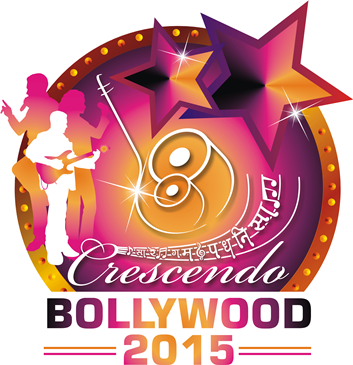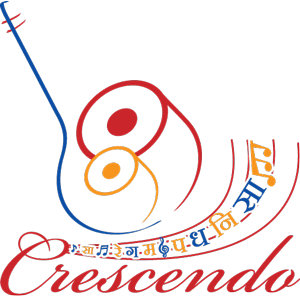| Ashok Da Ranade | ||
|---|---|---|
| Gharana | Khayal - Gwalior |  |
| Speciality | Vocal | |
| Guru |
Gajanan Anant Joshi B R Deodhar Pralhad Ganu "Anand" Laxman Bodas | |
| Born | Please login to view this information | |
| Died | Please login to view this information | |
| More information at : | Please login to view this information | |
| Short Bio : | Information submitted below has been put here only for educational purpose and has been submitted by community users and users of the site. SwarGanga has not verified any copyright and takes no responsibility whatsoever. If you feel that you own copyright to the material below, please let us know and we will with you on the same. Dr. Ashok Damodar Ranade is considered to be one of the most respected scholar musicians in India. He contributed in great deal in development of 'Indian Ethnomusicology'�. He was born on 25th November 1937 in Pune. He received extensive training of Hindustani Art music from four Guru-s - Pt. Gajananrao Anant Joshi (1948 to 58 - Gwalior, Jaipur, Agra gharana), Pt. Prahlad Ganu (1958 to 62 - Agra gharana), Pt. Laxmanrao Bodas (1962 to 66 - Gwalior gharana) and Prof. B. R. Deodher (1970 to 74 - Voice culture & vocal music). He had a great repertoire of traditional Ragas & Bandishes. In addition to this, he also composed several new Bandishes with pen name 'Rasik Rang'. After attaining the degrees, LL.B. (1960), - M.A. in Marathi (1962), M.A. in English (1964) from University of Bombay, he started his career with working in All India Radio, Mumbai Station (1963 to 1966) and then at Sidhharth Collage of Commerce and Economics (1967 to 1968). He was appointed as Director of University Music Center, Bombay, where he worked from 1968 to 83. He raised this Music Centre at very high level. He Worked as Associate Director at Archives and Research Center for Ethnomusicology, American Institute of Indian Studies, Pune (1983-1984). He was appointed as Deputy Director (Research, Theatre Development and Publications) at N.C.P.A., i.e. National Center for the Performing Arts, Mumbai (1984-93). Books: Dr Ranade wrote 9 Marathi books - Sangeetache Saundaryashastra (1971), Lokasangeetashastra & Stravinskyche Sangeetik Saundaryashastra (1975), Bhashanrang (1995), Bhashan Va Natya Vishayak Vichar (2001), Sangeetvichar & Hindustani Sangeet (2009), Mala Bhavlele Sangeetkar, Hindi Chitrapatgeet: Parampara ani Avishkar (2010) Dr Ranade's extensive writing in English gave him worldwide recognition as eminent musicologist. He wrote 14 English books on music, as following 'On Music and Musicians of Hindoostan' (1984), Stage Music of Maharashtra (1986), Maharashtra: Art Music (1989), Keywords and Concepts in Hindustani Art Music (1990), Music and Drama (1991), Indology and Ethnomusicology: Contours of Early Indo-British Relationship (1992), Hindustani Music (1997, first reprint 2002, second 2005), Essays in Indian Ethnomusicology (1998), Reflections on Musicology and History (2001), Hindustani Music, Music-Contexts: A Concise Dictionary of Hindustani Music, Hindi Film Song: Music Beyond Boundaries (2006), Perspectives on Music: Ideas and Theories (2008), Some Hindustani Musicians: They lit the way! (2011). His columns in newspapers, such as Kirananchi Savli (Maharashtra Times) and Sangeet Sangati (LokSatta) were appreciated by general readers along with scholars. Thematic presentations: Dr Ranade's thematic musical presentations used be enlighten the audience due to his rich commentary and apt rendition of compositions. He presented such 18 thematic concerts - Natyasangitachi Vatchal (1984), Manapamanatil Gani (1986), Sawan (1988), Baithakichi Lavani (1989), Devagani (1991), Sangeetrang (1992), Swarachakra & Rangbasant (1993), Natyasangeetache Marathi Valan (1994), Radha & Tribhang to Abhang (1995), Rachana Te Bandish (1997), Gayakiche valan (2000), Sanchit (2004), Chandrabhairavi (2005), Geetibhan & Santanchi Vatchal (2007), Ramgane (2009). 'Baithakichi Lavani', 'Devagani', 'Geetibhaan', 'Santanchi Vatchal', 'Sanchay', 'Kala Ganesh', 'Ram Gane' were his commercially released albums. Music Direction: He worked as music director for many Marathi & English plays, such as 'Chavata' (1971), Mythmakers (1971), Shonar Bangla (1972), Mata Draupadi (1972), Devajinae Karuna Keli (1973), Sandhya Chaya (1979), Ek Jhunja Varyashi (1988), Kala Vazir Pandhara Raja (1992), Tempt Me Not! (1993), Rahile Door Ghar Maze (1995) He scored music for exhibition 'Akar' (an International Exhibition on Calligraphy, IGNCA, New Delhi, 1988), 'Discovery of India' (Nehru Center, Bombay, 1989), 'On Fatehpur Sikri' (NCST, Mumbai). Dr Ranade also scored music for Hindi feature film Devi Ahilyabai (2003) and documentary films such as 'Baba Amte'ccand 'Singing Lines's. He edited music for a multimedia album 'Gangubai Hangal'. Abroad Tours: Dr Ranade toured around the globe for Lecture-demonstration, concerts, seminars and conducting courses in many abroad universities: U.S.S.R. (1976), U.K. (1979), Mauritius (1980), China (1984), Pakistan (1987), Japan, Ireland, U.K. (1989), U.S.A. (1991), Japan (1993), Germany (1995), Iran (1996), Holland (1997), Denmark (1998), Australia & Italy (1999), Germany, Amman (2000), Nairobi (2002), U.S.A. & Germany (2003), U.S.A. (2007). Honors & Awards: He was honored by title 'Sangeetacharya' by Akhil Bharatiya Gandharva Mahavidyalaya Mandal in 1976, Maharashtra State Award for Music Direction for play 'Ek Jhunja Varyashi' (1988), Music Forum Award for Music Research (1998), Master Krishnarao Phulambrikar Puraskar (1998), Kaladan Award from Government of Maharashtra (2006), Narhar Kurundkar Puraskar, Government of Maharashtra Award (Sameeksha) for the book 'Sangeet Vichar' (2009), P. L. Deshpande Puraskar by Govt of Maharashtra for 'Mala Bhavlele Sangeekar', Sangeet Natak Akademi Award, New Delhi (2010), 'Jeevan Gaurav Puraskar', Chaturang Pratishthan (2010). Dr. Ranade conducted workshops on Voice Culture for music and theatre regularly and a lot of professionals in these fields were trained under him. He participated in national and international seminars on various aspects of music and culture. Many students of music, artists, theatre personalities and institutions got benefitted from Dr Ashok Da Ranade's contribution as a scholar musician. ******************************************************************************************* |
|
| Disciple tree | Please login to view this information | |
You might also like the following videos we randomly search for you from youtubePlease wait while we randomly search some videos |



